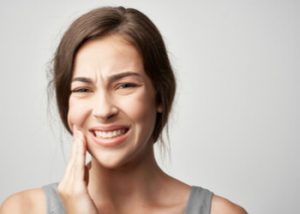Did you know that HIV and tooth decay are linked? It’s true! People with HIV are more likely to experience dental problems, such as tooth decay and gum disease. This blog post will explore the link between dental health and HIV and discuss how you can protect your teeth from cavities and other dental problems.
What is HIV?
HIV is a virus that attacks the body’s immune system. HIV is short for the human immunodeficiency virus. The virus can damage the body’s ability to fight off infections and diseases, leading to serious health problems.
HIV Aids
HIV can lead to AIDS, which is short for acquired immunodeficiency syndrome. AIDS is the most advanced stage of HIV infection. People with AIDS have a weakened immune system and are more susceptible to infections and diseases.
Tooth Decay
Tooth decay is a common problem in people with HIV. Tooth decay occurs when bacteria in the mouth break down tooth enamel, causing cavities. Cavities are small holes in the teeth that can cause pain, sensitivity, and other problems.
How Does HIV Affect Oral Health?
People with HIV are more likely to experience oral health problems, such as tooth decay and gum disease. This is because HIV weakens the immune system, making it difficult for the body to fight off infection. When the mouth is infected with bacteria, this can lead to cavities and other dental problems.
Can HIV affect children?
Yes, HIV can affect children. HIV-infected children are more likely to experience oral health problems, such as tooth decay and gum disease. This is because HIV transmission weakens the immune system, making it difficult for the body to fight off infection. When the mouth is infected with bacteria, this can lead to cavities and other dental problems.
What Can You Do to Prevent Cavities and Other Dental Problems?
You can do some things to prevent cavities and other dental problems. First, it is essential to practice good oral hygiene. This means brushing your teeth twice a day, flossing daily, and using mouthwash. It is also necessary to see your dentist regularly for checkups and cleanings. Additionally, you can use fluoride toothpaste, which can help to prevent cavities.
By following these tips, you can help to protect your teeth from cavities and other dental problems. Remember, HIV weakens the immune system, so it is essential to take care of your oral health.
Can HIV cause tooth decay?
Yes, HIV can cause tooth decay. This is because HIV weakens the immune system, making it difficult for the body to fight off infection. When the mouth is infected with bacteria, this can lead to cavities and other dental problems. Therefore, it is essential to practice good oral hygiene and see your dentist regularly for checkups and cleanings. Additionally, you can use fluoride toothpaste, which can help to prevent cavities.
If you have HIV, it is essential to take care of your oral health. This includes brushing your teeth twice a day, flossing daily, and using mouthwash. It is also necessary to see your dentist regularly for checkups and cleanings.
HIV-associated salivary gland disease
HIV-associated salivary gland disease may also lead to tooth decay. The condition can cause the salivary glands to produce less saliva. Saliva is essential for keeping the mouth clean and healthy, so a decrease in saliva can lead to cavities and other dental problems. If you have HIV-associated salivary gland disease, it is essential to see your dentist regularly and use fluoride toothpaste.
By following these tips, you can help to prevent cavities and other oral diseases. Remember, HIV weakens the immune system, so it is essential to practice good oral health care.
Oral hairy leukoplakia
Oral hairy leukoplakia is a condition that can occur in HIV-infected adults. The condition causes white, fuzzy patches to form on the tongue or inside the cheek. Oral hairy leukoplakia is not painful, but it can lead to tooth decay. The white, fuzzy patches can trap bacteria and food particles, leading to dental caries. If you have oral hairy leukoplakia, it is essential to see your dentist regularly and brush your teeth twice a day.
Non-Hodgkins lymphoma
Non-Hodgkin lymphoma is a type of cancer that can occur in an HIV-positive patient. Cancer affects the lymphocytes, which are a type of white blood cell. Non-Hodgkin lymphoma can cause several dental problems, such as tooth loss, gum disease, and mouth sores. If you have non-Hodgkin lymphoma, it is essential to see your dentist regularly and practice good oral hygiene.
Herpes simplex virus
Herpes simplex virus is a virus that can cause cold sores, which are painful blisters that form on the lips or around the mouth. Herpes simplex virus can also lead to tooth decay. This is because the virus can cause inflammation of the gums, leading to cavities. If you have the herpes simplex virus, it is essential to see your dentist regularly and practice good oral hygiene.
Oral Candidosis
Oral candidiasis, also known as thrush, is a condition that can occur in people with HIV infection. A yeast infection causes the condition, and it can cause white patches to form on the tongue or inside the cheek. Oral candidosis can also lead to tooth decay. The yeast infection can cause the gums to become inflamed, leading to cavities. If you have oral candidosis, it is essential to see your dentist regularly and practice good oral hygiene.
Can HIV cause periodontal diseases?
Yes, HIV infection can cause periodontal diseases. This is because HIV weakens the immune system, making it difficult for the body to fight off infection. When the gums are infected with bacteria, this can lead to periodontal disease. Therefore, it is essential to practice good oral hygiene and see your dentist regularly for checkups and cleanings. Additionally, you can use fluoride toothpaste, which can help to prevent gum disease.
Treatment for HIV
There is no cure for HIV-positive patients, but treatments such as antiretroviral therapy are available that can help people manage the virus. HIV treatments can help to improve a person’s quality of life and extend their life expectancy. If you have HIV, it is essential to see your doctor regularly and take your medications as prescribed. Additionally, it is necessary to regularly practice good oral hygiene and see your dentist for checkups and cleanings.
The protective role of the mouth
The mouth is the first line of defense against infection. The saliva in the mouth helps to kill bacteria and other germs. Additionally, the teeth help trap food particles and prevent them from entering the body. By taking care of your oral health, you can help to protect your overall health.
What Can You Do to Prevent Tooth Decay?
There are a few things you can do to prevent tooth decay:
-Brush your teeth twice a day with fluoride toothpaste
-Floss your teeth every day
-Visit your dentist regularly for checkups and cleanings
-Eat a healthy diet
-Don’t smoke cigarettes or use other tobacco products
What will the dentist do If I have HIV and tooth decay?
If you have HIV and tooth decay, your dentist will likely recommend a course of treatment. This may include fillings, crowns, or extractions. In some cases, your dentist may also recommend a root canal. If you have HIV and tooth decay, it is essential to see your dentist regularly and follow their recommended dental treatment plan.
References:
https://www.nidcr.nih.gov/health-info/hiv-aids
https://www.mayoclinic.org/healthy-lifestyle/adult-health/in-depth/dental/art-20047475
https://www.mayoclinic.org/healthy-lifestyle/adult-health/in-depth/dental/art-20047475
https://www.colgate.com/en-us/oral-health/hiv-aids-and-stds/dental-problems-associated-with-hiv-aids






